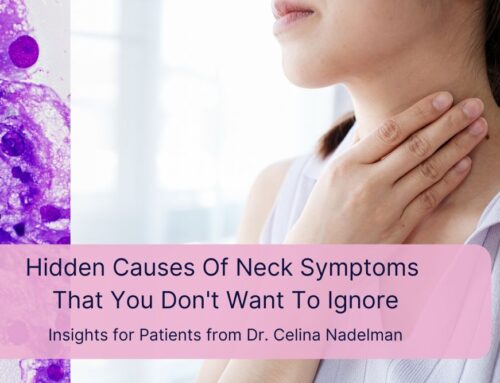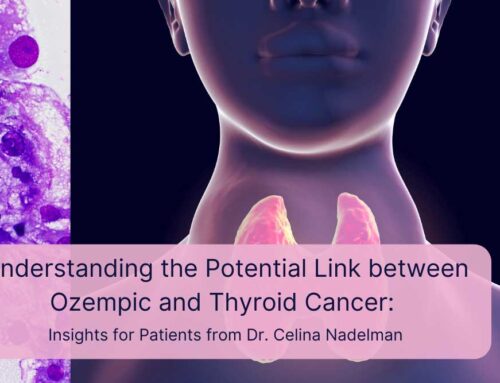Thyroid Enlargement and Nodules: Is It Cancer?
Thyroid cancer is on the rise in the U.S. The good news is that the increase is partly due to better diagnostic methods. The other good news is the death rate is still very low compared to other cancers. In fact, incidental thyroid cancers are found in 25% of autopsy cases. Fine needle aspiration (FNA) biopsy is a quick and relatively non-invasive way to diagnose thyroid cancer and help patients start their treatment plans sooner.
What is the Thyroid?
The thyroid is a butterfly-shaped gland at the base of the neck that secretes hormones to regulate the body’s metabolism. Thyroid hormones affect cells found throughout the body, but have a particular impact on the skeleton, heart, and metabolic machinery of cells. Low thyroid hormone levels can cause weight gain as well as symptoms such as fatigue, sensitivity to cold, and menstrual irregularities in women. An overactive thyroid can cause a rapid heartbeat, weight loss, anxiety and insomnia. The thyroid gland can become enlarged (this is called a goiter) for a variety of reasons other than cancer – such as iodine deficiency.
What are Thyroid Nodules?
Lumps called nodules can form in the thyroid. Some nodules can be felt by a patient as well as by their GP (general doctor). About 1 in 10 adults have thyroid nodules that can be felt on examination. However, an ultrasound will pick up nodules too small to feel. The nodules may cause increased secretion of thyroid hormone (hyperthyroidism) (also called “hot” nodules), however, some have little to no effect on hormone levels. Only one in 20 nodules becomes cancerous. Some nodules are filled with fluid or colloid – a stored form of thyroid hormone. Other thyroid nodules are solid, or mixed (solid and cystic) and these are more likely to be cancerous. However, many of these nodules are still not cancerous. Benign thyroid nodules (non-cancerous) usually do not require treatment and may be left alone as long as they are not causing any problems. However, thyroid nodules should be monitored to see if they are growing or if their characteristics change.
About Thyroid Cancer
People with a family history of thyroid nodules and thyroid cancer are more likely to develop similar problems. Women have three times the risk of thyroid cancer than men do. Increasing age is a risk factor, although women are more likely to be diagnosed in their 40s and 50s, while men are more likely to be diagnosed in their 60s and 70s. Radiation exposure and low iodine intake also increases the risk of thyroid cancer.
Diagnosing Thyroid Cancer
A fine needle aspiration specialist can help diagnose thyroid cancer. An FNA procedure is a quick, non-invasive, and relatively simple way to assess thyroid nodules in order to determine if they are cancerous. The earlier detection, the earlier the treatment can be started. Earlier treatment can significantly increase your chances of an easier and fullrecovery.




